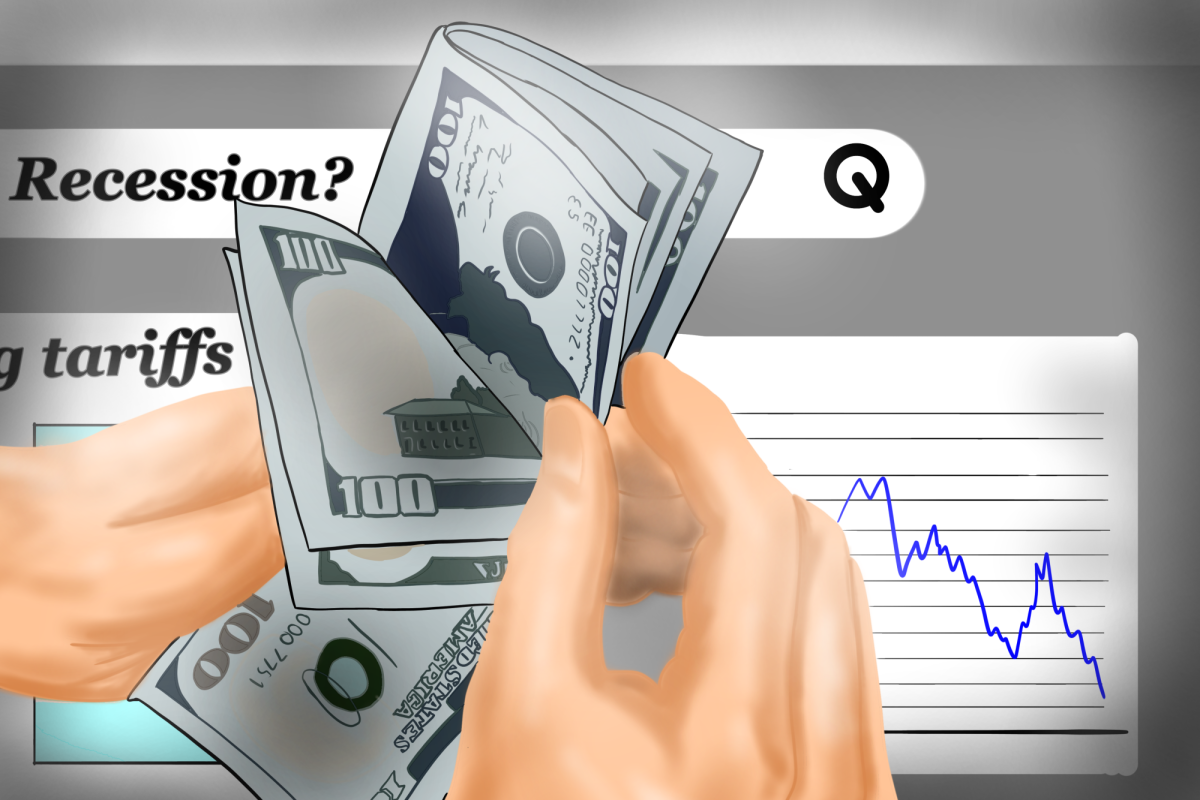Financial news is available far and wide with different outlets reporting different things. While some proclaim economic stability, others cry out warnings of a major recession. So where does the economy truly stand right now?
Recent events have sparked increasing concern about the economy. From tariffs to unemployment statistics, inflation to interest rate uncertainties, fears of a recession run deep. Some see current news as concerning threats, whereas others dismiss the validity of these fears.
While it appears that people will always have disputes over the signs and causes of recessions, there are currently not enough signs to confirm that there will be a recession. That being said, the economy is volatile and requires constant monitoring.
Fears of recession stem largely from President Donald Trump’s tariffs and a potential stock market bubble. Many see the recent stock market surge, especially in artificial intelligence (AI) sectors, as comparable to the “dot-com” bubble 25 years ago, when the stock market plummeted after a sharp rise fueled by heavy investment in technology. They believe that the stock market will go through a similar correction, or a large drop in stock prices, in the near future, causing a major economic downturn.
However, the AI surge is not simply because of investor excitement; it is driven by real growth. According to J.P Morgan Private Bank, “this rally doesn’t look like a bubble.” Tariffs have been a source of great fear for many, but they have not had the immense negative impact people feared they would. Big companies, like Apple and Nvidia, have shown an ability to adapt and resist tariffs by making trade deals with the government and maintaining diverse supply chains, allowing them to have backup plans they can rely on amid an extremely volatile economic environment with tariffs and uncertainty in stocks. The stock market reinforces the resilience of the American economy. Despite widespread fear, companies continue to grow, and people continue to invest, proving the economy remains strong and that recent tariffs have not destroyed the economy yet.
Although the stock market is not a perfect measure of the economy, it still stands that major U.S. companies are doing well in terms of growth, with examples like Alphabet’s new $3 trillion market cap. The question now becomes: Does the resilience of large companies mean that the economy is safe from all speculations of a recession?
Not necessarily. Nevertheless, “corporate earnings remain strong … the economy seems poised to continue to grow,” according to Fidelity Investments. Although the performance of large companies is not a direct reflection of economic direction, it is extremely influential to the economy.
Market trends and corporate statistics show that the economy is holding up against uncertainties like high inflation and unemployment rates. While the economy may exhibit some signs of an economic downturn, the continued success of large companies can anchor the economy during difficult times. Private companies are “pillars of the American economy, shaping communities, creating jobs and driving innovation,” according to the U.S. Chamber of Commerce.
One of the biggest indicators of a recession is decreased spending and investment. However, stocks continue to rally, with the Nasdaq and the S&P 500 reaching fresh records as recently as one week ago and a few days ago, respectively.
“Companies, especially in tech and communications, are spending heavily on artificial intelligence,” according to Fidelity Investments. While this may not seem like a big deal given that AI is rapidly growing, investment is a strong indicator of economic stability.
Also, according to Morningstar, business investment generally declines at the beginning of a recession, but as mentioned above, that is not the case right now. The willingness of many businesses to invest heavily in AI suggests that the economy is still strong and still growing, and that threats like tariffs have not had the effect they were feared to have.
An economic downturn is defined as “a stock market decline from its peak by 20% or more,” according to Morningstar. Stocks have not fallen that steeply from their peaks. In fact, some, like Alphabet Inc. (GOOG) have reached their peaks recently. The economy continues to push forward, not backwards, although at a slower pace than before. If we are not even in a downturn, how can we say we are in a recession?
There are many reasons, especially now, that people fear a recession. Many of them are valid, and the economy is almost always volatile, especially with current events, so it must be monitored carefully and constantly. However, there has been too much growth and not enough evidence to surely declare a concerning economic slump.
It is essential that the people and the government alike know whether or not we are in a recession so that they can make informed, educated decisions with their finances. Economics, on a large scale and an individual scale, greatly impacts everybody, and we should all do our best to understand the economy and make choices that will be beneficial to all, even when the economy is fine.
We may not be in a recession, but we cannot take our eyes off of the economy.










